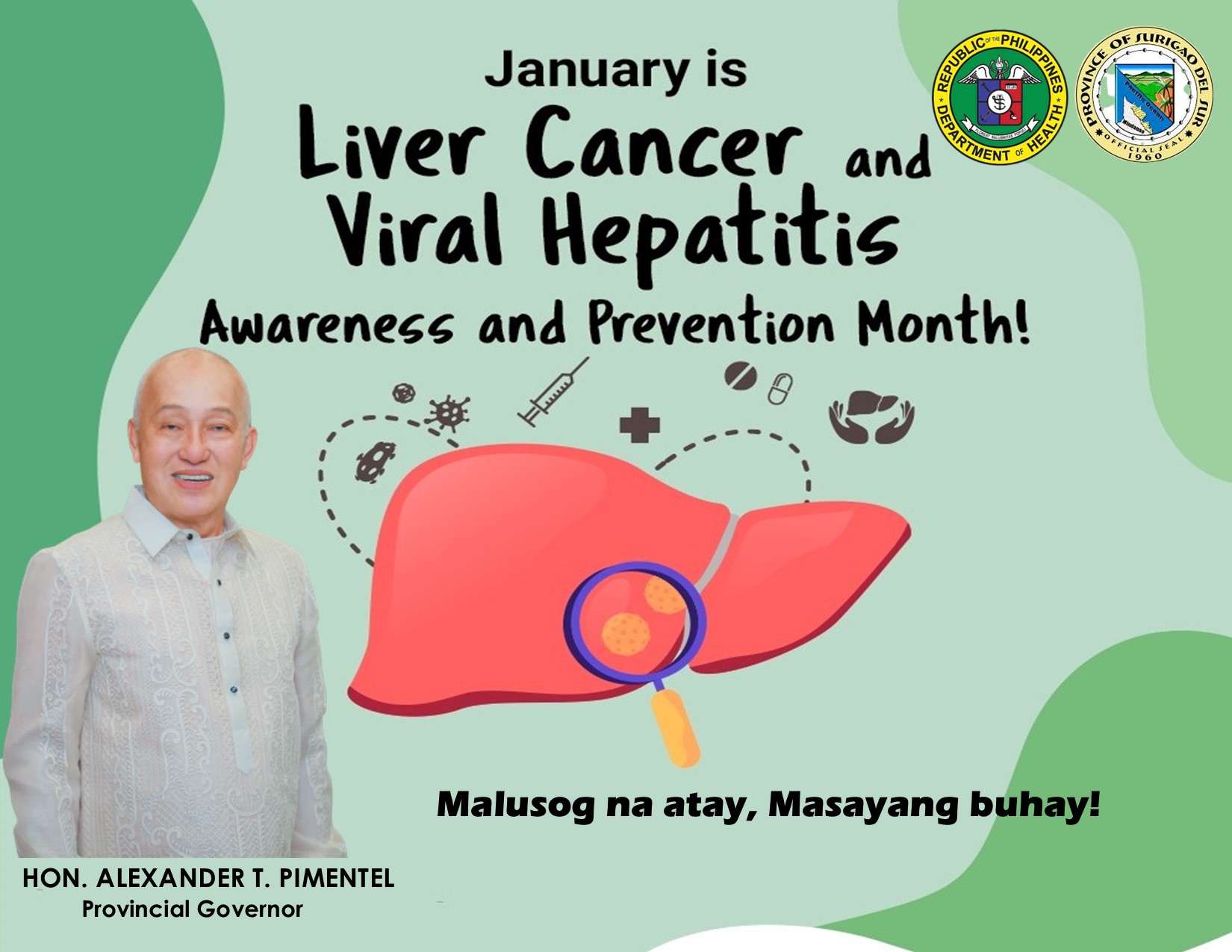Liver Cancer and Viral Hepatitis Awareness & Prevention Month
This January, we are observing the Liver Cancer and Viral Hepatitis Awareness and Prevention Month .Worldwide, liver cancer is the sixth most frequently diagnosed cancer as of 2018. In the Philippines, liver cancer ranks fourth leading cancer type and ranks second in cancers that lead to mortality among Filipinos as of 2020.
What is Liver Cancer?
Liver Cancer or Hepatocellular carcinoma is a malignant tumor that develops from chronic liver disease especially in individuals with cirrhosis or liver damage or those with Hepatitis B infection.
What are the risk factors of having Liver Cancer?
In terms of sex, liver cancer is more frequent in men than in women due to exposure to environmental toxins and women tend to have protective effects from the hormone estrogen. Another risk factor is chronic infection with Hepatitis B virus that causes liver damage and injury which accounts for 50 percent of liver cancer cases and is the predominant cause in Asia and Africa. Lifestyle factors include chronic and excessive alcohol and tobacco use which is more relevant in individuals with a family history of liver cancer.
How can Liver Cancer be prevented?
Since Hepatitis B virus infection is the leading cause of liver cancer in Asia, the primary prevention of liver cancer is through Hepatitis B vaccination and timely treatment of Hepatitis B or C virus infection through antiviral treatments. Hepa B vaccines are given during the first 2 years of life. There are also catch-up vaccinations for unvaccinated children which are given in 3 separate doses. Adults may also go for vaccination or booster doses if needed. Below are some nutritional tips to maintain a healthy liver and prevent liver cancer:
1. Drink alcohol in moderation. Excessive alcohol consumption is associated with liver damage which may lead to liver cancer. This is due to the toxic byproduct of alcohol metabolism - acetaldehyde which damages liver tissues.
2. Eat fatty foods in moderation and monitor your cholesterol levels. Excessive consumption of fatty foods especially from animal sources contribute to elevation of blood cholesterol levels. Excess fat may deposit in the liver when high cholesterol levels are left untreated for years. These fat deposits lead to fatty liver disease which may also lead to hepatitis or liver inflammation. Together with other lifestyle related factors such as alcohol consumption, this condition may contribute to liver cancer.
3. Eat a variety of fruits and vegetables to supply the nutrients needed to maintain a healthy liver. Vitamins and minerals from fruits and vegetables are needed for regenerating damaged cells in the body including the liver. Having a healthy diet and healthy lifestyle practices can help prevent or reduce the risk of developing cancer in later life.
References:
[1] World Health Organization (2020). Global Cancer Observatory: Philippines Fact Sheet. Retrieved from https://gco.iarc.fr/today/data/factsheets/populations/608-philippines-fact-sheets.pdf
[2] Schwartz, J.M. & Carithers, R.L. (2021). Epidemiology and risk factors for hepatocellular carcinoma. UpToDate. Date Accessed 26 January 2022. Retrieved from https://www.uptodate.com/contents/epidemiology-and-risk-factors-for-hepatocellular-carcinoma?search=Liver%20cancer&source=search_result&selectedTitle=5~150&usage_type=default&display_rank=5#H146269848
[3] Jameson, J. L., Fauci, A.S., Kasper, D.L., Hauser, S.L., Longo, D.L., & Loscalzo, J. (2018). Harrison's principles of internal medicine, 20th ed. United States of America: McGraw-Hill Education.
[4] Raymond, J. L., & Morrow, K. (2020). Krause and Mahan’s Food and the Nutrition Care Process E-Book. Elsevier Health Sciences.
[5] https://nnc.gov.ph/regional-offices/mindanao/region-xi-davao-region/7000-january-is-liver-cancer-and-viral-hepatitis-and-prevention-month

